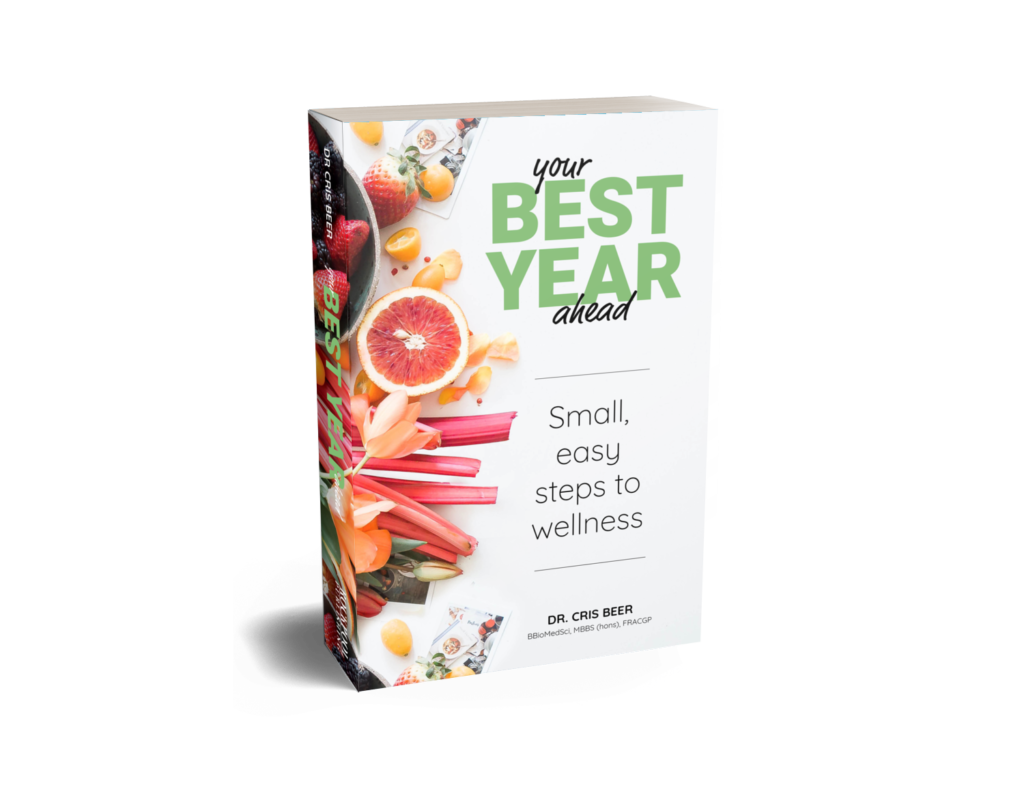Water is the single most important nutrient that our bodies need and it is involved in almost every bodily function. With around 60 per cent of our body composed of water it is essential for life. Even our bones are made up of about 30 per cent water.
Amazingly we can live for no more than five days without water as opposed to 30–40 days without food. Yet many of us don’t drink enough of this precious liquid. Most of us live in a state of mild to moderate dehydration and don’t even realise it.
A recent patient of mine who is a plumber and works long hours outdoors was always suffering from muscle cramps and headaches. When I asked him how much water he drank per day he said the recommended 2–3 Litres. But when we undertook some general blood tests his results indicated that he was suffering from a state of dehydration with an alteration in his kidney function. I advised him to trial doubling his water intake. Within a matter of days his symptoms had improved. I recently saw him again and he mentioned that his symptoms have still abated just by making sure he is drinking plenty of water to compensate his losses through sweat.
So what are some of the signs and symptoms that you may be suffering from dehydration? Some of these may surprise you!
Symptoms & Signs That You Are Dehydrated
- Fatigue
- Headaches
- Reduced concentration
- Dark circles under the eyes
- Muscle cramps
- Dry skin
- Joint pains
- Dry, sticky mouth (late symptom)3
- Constipation
- Dizziness or light-headedness
- Inability to lose weight
- Digestion problems
- Decreased urine output (passing urine less than 4 times per day)
- Dark-coloured urine
Given these symptoms then how much water should we be drinking?
How Much Water Do You Need?
Although research isn’t clear on exactly how much water to drink per day the general recommendation is 2–3 Litres per day or 6–8 glasses. I generally make a more specific
recommendation and say drink 1 Litre for every 25kg that you weigh.
Keep in mind, however, that if you are engaging in heavy exercise or are sweating heavily then you need to add a extra 1–1.5 Litres for every hour of heavy exercise or heavy sweating.
You know that you have drunk enough water throughout the day if your urine is straw-coloured or clear.
To Filter or Not to Filter?
To date there is no absolute evidence pointing to the benefits of filtered or bottled water over tap water in developed countries. Saying that, there is some preliminary evidence to suggest that the amount of chlorine and fluoride added to our water-purifying systems is harmful to our health and can be attributing to a number of health problems ranging from cancer and allergies to abdominal pains and headaches.
Tank water is prone to being contaminated with bacteria and other organisms. I recall a patient who came to see me to seek help for abdominal pains and diarrhoea of three months duration. When we undertook stool testing she in fact had a parasite infection called cryptosporidium from drinking contaminated water. Tank water must be regularly checked to ensure it is not contaminated.
If you want to ensure that the water you are drinking is uncontaminated and pure the best filtration system is reverse osmosis. Make sure you purchase this from a reputable source. Many people choose to have a reverse osmosis filtration system installed under the sink. There is some evidence to suggest that choosing to add an alkaline filter to your system replenishes essential minerals to the body. As an alternative to alkaline filters you can add a few drops of alkaline solution to each glass of water. Alkaline solution can be bought from most health food stores. Often bottled water is actually tap water filtered in this way and not ‘bottled at the source’ as marketing would have you believe.
Chilled, Warm or Room Temperature?
This is another common query. Should our water be drunk at room temperature, slightly warmed, or drunk cold? The theory behind drinking warm water or room temperature over chilled is that chilled water is too much of a ‘shock’ to our body, which typically sits around 37 degrees. To date, however, there is no supporting evidence to suggest one is better than the other. In reality, most of us are able to drink more water if it is at room temperature simply because chilled water is often too cold to drink at once.
#healthyhabits #healthyliver
Dr Cris
Holistic Medical Doctor, Author ‘Your Best Year Ahead‘, ‘Healthy Habits, 52 Ways to Better Health‘ and Healthy Liver




